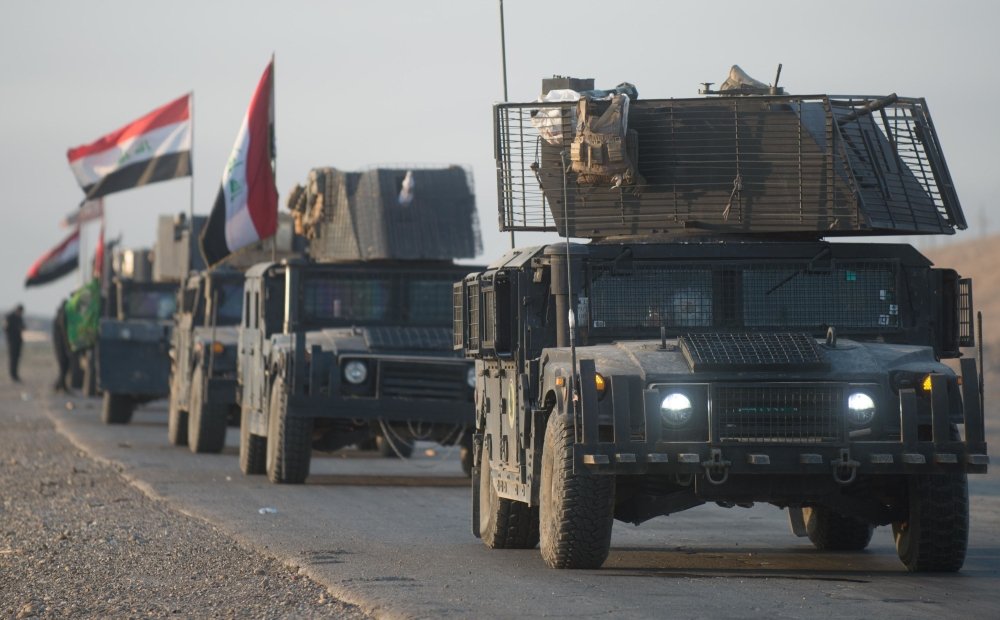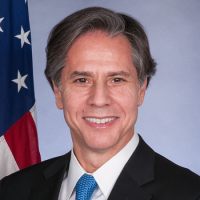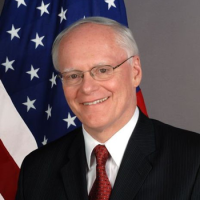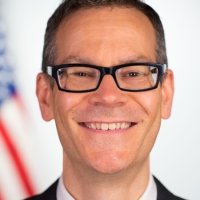Mosul after ISIS: Whither US Policy in Iraq?

The liberation of Mosul from ISIS control is a major win for the Iraqi government, the United States, and the campaign to defeat the terrorist group – but a critically important question now looms: What comes next for US policy toward a country divided and tattered from years of war?
How can the US ensure that military victory against ISIS doesn't turn into political defeat in Iraq? How can Washington help sow the seeds of security, reconstruction, and political reconciliation, while guarding against intervention by external powers that could threaten those prospects? Indeed, is any of this possible?
Four former US policy advisers with broad experience in Iraq and the Middle East addressed these and related questions.
Key Quotes:
Jane Harman:
“In my view, both Obama and Trump deserve credit for some of our military successes against the Islamic State.”
“The doctrine we are using is ‘clear, hold, and build’ and the question is: after Mosul has been cleared under the leadership of Iraq, who is going to hold and rebuild Mosul, a huge city that has been totally devastated?”
Aaron David Miller:
“The fall of Mosul, and, perhaps months from now, the fall of Raqqa, too – the issue, I suspect, is going to be, what is the US going to do on the proverbial day... after? Will US policy be risk-ready… or are we talking risk-aversion?”
“Geography and demography are destiny here – they’re two factors that no nation can alter.”
Antony J. Blinken:
“As a result of the liberation of Mosul, the physical caliphate in Iraq is more or less gone.”
“[ISIS’s] core narrative, that it’s building an actual state, is in tatters.”
“Even with the Islamic State more or less defeated militarily, the political and economic conditions that facilitated its rise will continue to fester.”
“As Iraq awakens from this nightmare that Daesh represented, there may be greater appetite to keep some Americans around.”
Amb. James F. Jeffrey:
“Within a few years, with any luck, [Iraq will] be exporting almost two-thirds of the oil that Saudi Arabia does. It is a rich country agriculturally, it has water, it has all of the things you need for a prosperous Middle Eastern country – and as I said, it has survived in a way Syria hasn’t.”
"They have tremendous needs that only the international community, the World Bank, the IMF can meet… There are many ways in which the global system is important for Iraq in a way that it isn’t, for example, for Syria.”
“Most of the time we can get most of the actors – the Turks, the Israelis, the Saudis, the Emiratis, the Qataris – to support a regional order of collective security led by us at the center. Iran is not in that league.”
Colin Kahl:
“ISIS isn’t going to disappear. Not only are they going to be a virtual, global, transnational phenomenon, even once the physical caliphate is completely smashed, but they’re not going to completely disappear from Iraq and Syria either. They’re going to revert to what they were before, which is a cellular terrorist network and insurgency.”
“I think the wildcard in this is that [Masoud] Barzani may see that he’s getting toward the end of his tenure… and most certainly, the legacy that he wants is to be the founding father of an independent Kurdish nation.”
“After Mosul, that common cause [fighting ISIS] has basically evaporated.”
“When it comes to balancing Iran’s influence, we have to play the long game.”
Robert Malley:
"It’s hard not to look at the coincidence between the large increase in civilian casualties in both Iraq and Syria [and] the shift in [American] administrations… That, too, is going to have long-term consequences when our goal needs to be to diminishing any anti-US sentiment and any recruitment ability for ISIS or its successor.”
“ISIS emerged in stages and it’s going to disappear in stages. ISIS has three identities: one is as a state-like caliphate, the other is as an insurgency, and the third is as a terror group."
“We have to learn the lessons of history. Iran has expanded its influence in several theaters in the Middle East... not because there wasn’t enough pushback; They're benefiting from the mistakes of others and they also benefited from chaos.”
p.p1 {margin: 0.0px 0.0px 0.0px 0.0px; font: 14.0px Arial; -webkit-text-stroke: #000000} p.p2 {margin: 0.0px 0.0px 0.0px 0.0px; font: 14.0px Arial; -webkit-text-stroke: #000000; min-height: 16.0px} span.s1 {font-kerning: none} p.p1 {margin: 0.0px 0.0px 0.0px 0.0px; font: 14.0px Arial; -webkit-text-stroke: #000000} span.s1 {font-kerning: none} p.p1 {margin: 0.0px 0.0px 0.0px 0.0px; font: 11.0px Arial; -webkit-text-stroke: #000000} span.s1 {font-kerning: none}
Speakers


Former ambassador to Iraq and Turkey, and Special Envoy to the Global Coalition To Defeat ISIS

Introduction

Moderator

Hosted By

Middle East Program
The Wilson Center’s Middle East Program serves as a crucial resource for the policymaking community and beyond, providing analyses and research that helps inform US foreign policymaking, stimulates public debate, and expands knowledge about issues in the wider Middle East and North Africa (MENA) region. Read more
